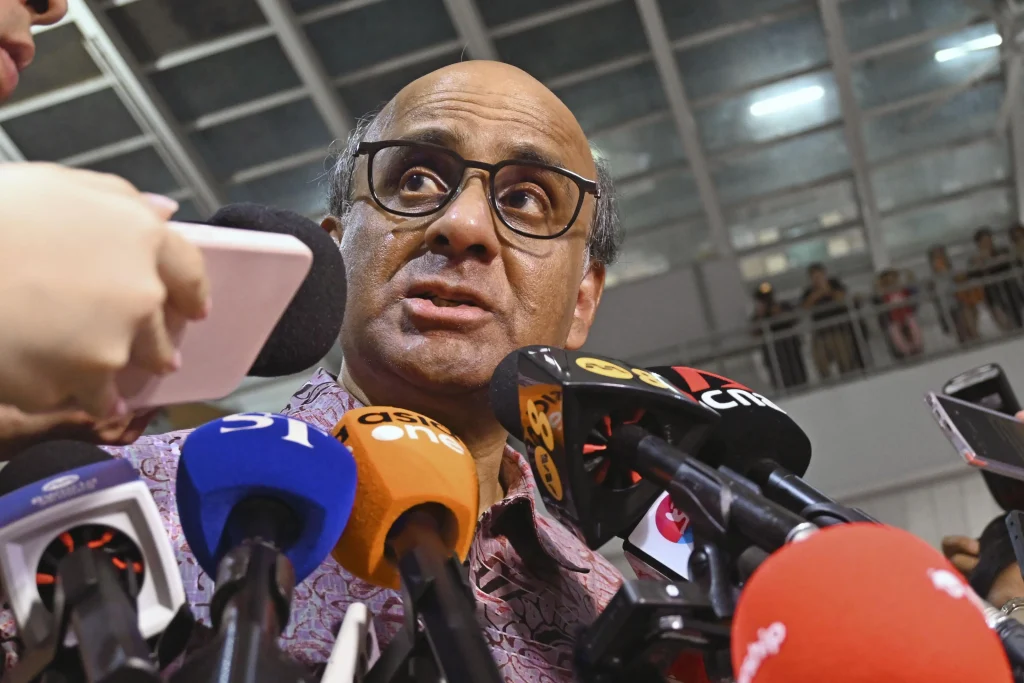As a small independent island nation, less than 750 square kilometres in size and with a population of around 5 million, Singapore depends heavily on inflows and outflows of investments, trade in goods and services, food and energy. In a volatile global environment, geopolitics, structural issues and domestic scandals impacted variously on Singapore in the past year.
Externally, geopolitical tensions contributed to a less benign and less hospitable environment, marked by ongoing conflicts such as the Ukraine War, the outbreak of a new Israel-Palestinian conflict and heightened Northeast Asian geopolitical tensions. Economic fallout resulting from the rise in global protectionism on national security grounds, supply chain and technology disruptions and global inflationary and recession fears added to this new complexity.
Domestically, as an advanced nation, Singapore grappled with structural rigidities and slowing social mobility, leading to the fracturing of social cohesion. A rapidly ageing population constrains labour supply, requiring the restructuring of jobs and rising social expenditures driven by geopolitics, protectionism and climate change. On top of these challenges, there is a possibility that Singapore’s strategic location as a hub of global trade will be lost through sea and air route reconfigurations driven by geopolitics and protectionism.
In 2023, GDP growth was dismal at around 1 per cent. Major sectors experienced declining exports, while consumers faced higher prices of imported food, energy and related goods and services.
Fortunately Singapore has accumulated financial reserves and maintained fiscal prudence during earlier decades of high economic growth. Singapore has also reaped the population growth dividend, established friendly global and regional relations and expanded its land, air and sea infrastructure to maintain international and regional connectivity, so far minimising disruptions to its hub status and vital role in global supply chains. It has also adopted measures to mitigate the impact of climate change. Singapore is transforming its economy and society in response to the changing comparative advantages and social aspirations of a new age.
But in the past year, normally staid Singapore was rocked by scandals of corruption and sexual misdemeanours among political office holders and parties. There were investigations, court cases, active debates in Parliament, resignations and dismissals. Though the courts cleared some of wrongdoing, others cases are still pending.
Singapore has been governed by the People’s Action Party (PAP) since political independence. The PAP plans its succession, meaning the emergent new team is identified and ‘tutored’ for many years. The transition from Prime Minister Lee Hsien Loong and his third-generation team to Deputy Prime Minister Lawrence Wong and his fourth-generation team has been long. The new team took on greater responsibilities, especially in handling the COVID-19 pandemic, increasingly setting the national policy agenda. In early November, Lee confirmed he was stepping down and passing the baton to Wong before the next general elections, due by November 2025.
Singaporeans voted in the contested presidential election in September. Tharman Shanmugaratnam, a nationally and internationally respected economist and former PAP cabinet member, won the election with an overwhelming majority of over 70 per cent, reflecting his first rate personal credentials, a unifying campaign message, and Singaporeans’ continued confidence in the PAP. But a contentious issue for future presidential elections remains the eligibility criteria for a presidential candidate.
Deputy Prime Minister Wong announced the conclusion of his Forward Singapore exercise and the publication of the Forward Singapore Report in October 2023. The exercise, which ran from June 2022, engaged a wide spectrum of Singaporean society — some 200,000 participants — on a thinking through a refreshed economic and social compact going forward.
The report proposes seven shifts toward a vibrant, inclusive, fair, thriving, resilient and united Singapore. These shifts include embracing learning beyond academic grades, respecting and rewarding every job while reducing wage gaps, supporting families through every stage of life, enabling seniors to age well, empowering those in need, investing in a shared tomorrow and nurturing a sense of unity among the people.
Many of the policies and actions in the report will now be subject to parliamentary and social media debates about objectives, alternative strategies, effectiveness and impacts in the coming months. While some policies and measures will be generally welcomed, others would be subject to criticisms and disputes where they impact negatively on some segments of society, such as higher taxes and fees.
Externally, inflationary and recession fears should recede. Politically, the new leadership is transitioning towards a more consultative and inclusive governance style. Economically, Singapore is bracing for significant challenges. The emphasis now is on preparing the population, employers and the workforce for changes in formal education, skill sets, lifetime employment, employability and job scopes, with the aim of maintaining sustainable incomes and wage growth.
Social cohesion in Singapore has been buttressed by its multi-racial, linguistic, and cultural diversity, along with its tripartite framework. Adaptive and innovative policies will need to be implemented to ensure a level playing field and foster upward economic and social mobility, addressing accessibility and costs of various goods and services and providing financial aid and subsidies for the disadvantaged and marginalised.
Chia Siow Yue is Associate Senior Research Fellow at the Singapore Institute of International Affairs.
This article is part of an EAF special feature series on 2023 in review and the year ahead.


In 2023, Singapore grappled with numerous difficulties such as geopolitical tensions, economic fallouts, domestic structural rigidities, a rapidly ageing population, corruption scandals among political figures and increasing impacts of climate change, affecting economic growth and social cohesion. To navigate these trials and establish a vibrant and inclusive future, Singapore, under new political leadership, is implementing innovative policies focussing on preparing its population for changes in education and employment, fostering social mobility and maintaining international connectivity, all while actively engaging citizens through initiatives such as the Forward Singapore exercise.